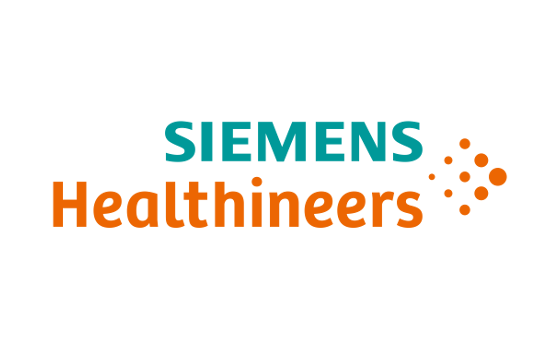 At the ISMRM (International Society for Magnetic Resonance in Medicine) in Montreal, Canada, Siemens Healthineers is the first supplier in the world to offer magnetic resonance fingerprinting (MRF) as a product for tissue analysis in clinical neurological research. The MRF application is the result of an exclusive, multi-year research partnership with Case Western Reserve University and the University Hospitals in Cleveland, which aims to make MR measurements much more quantifiable and reproducible. Thanks to this approach, a reliable judgment will be possible as to whether tissue is healthy or how badly it is damaged. This is a further means by which Siemens Healthineers is paving the way to personalized treatment and precision medicine. The MRF application and the associated database will initially be made available for the 3-Tesla Magnetom Vida magnetic resonance imaging system. Corresponding software packages for other 3T scanners from Siemens Healthineers will follow.
At the ISMRM (International Society for Magnetic Resonance in Medicine) in Montreal, Canada, Siemens Healthineers is the first supplier in the world to offer magnetic resonance fingerprinting (MRF) as a product for tissue analysis in clinical neurological research. The MRF application is the result of an exclusive, multi-year research partnership with Case Western Reserve University and the University Hospitals in Cleveland, which aims to make MR measurements much more quantifiable and reproducible. Thanks to this approach, a reliable judgment will be possible as to whether tissue is healthy or how badly it is damaged. This is a further means by which Siemens Healthineers is paving the way to personalized treatment and precision medicine. The MRF application and the associated database will initially be made available for the 3-Tesla Magnetom Vida magnetic resonance imaging system. Corresponding software packages for other 3T scanners from Siemens Healthineers will follow.
"MRF represents a paradigm shift in MR image acquisition," says Arthur Kaindl, head of Magnetic Resonance at Siemens Healthineers. "We generate unique ‘fingerprints’ that reflect the properties of the scanned tissue, and so we can describe the target anatomy numerically instead of visually for the first time. This information forms the basis for machine-assisted analysis for tissue classification, and thus also personalized treatment programs. The data also offers excellent opportunities for utilization and further development of artificial intelligence and Deep Learning."
Jeffrey Sunshine, Chief Medical Information Officer at the Cleveland University Hospitals and interim Co-Chair of Radiology at Case Western Reserve University and the University Hospitals adds: "I firmly believe that MRF will revolutionize the world of MR imaging. MRF lets us perform reliable tissue analyses. For example, we can assist tumor staging in cancer cases, which can save the patient from undergoing a biopsy and thus a surgical intervention. At the same time, the fact that tissue analyses are comparable means we can perform reliable progress checks."
The MRF method
MRF measures signal evolutions within each recorded voxel. The parameters for image acquisition are pseudo-randomized in the process, and the changes in signal are recorded. An algorithm compares the acquired datasets against a previously established database and locates the entry that most closely matches the signal evolution in question. This information can be compared to the fingerprints used in forensic investigations. Just like fingerprints, evaluation is possible only with access to a database that’s as comprehensive as possible. The forensic database links the fingerprint, and its unique characteristics, with the person’s own features (name, height, eye color, etc.). Likewise, the MRF database contains T1 and T2 values and can later be complemented with other parameters like relative spin density, B0, and diffusion. The clinic can link this information to the data for the underlying tissue type (bone, healthy tissue, diseased tissue).MR images provide excellent information for diagnostics. But the images can differ greatly depending on the system, patient, and user, and are limited in terms of reproducibility and comparability. Although it has previously been possible to obtain absolute measurements of individual tissue properties, like diffusion, fat and iron deposits, perfusion, and relaxation times, lengthy measurement times were necessary. The previous deficits are comprehensively addressed by the new MRF method.
Magnetic Resonance Fingerprinting is currently under development and not commercially available. It is not for sale. Its future availability cannot be guaranteed.
About Siemens Healthineers
Siemens Healthineers enables healthcare providers worldwide to increase value by empowering them on their journey towards expanding precision medicine, transforming care delivery, improving patient experience and digitalizing healthcare. A leader in medical technology, Siemens Healthineers is constantly innovating its portfolio of products and services in its core areas of diagnostic and therapeutic imaging and in laboratory diagnostics and molecular medicine. Siemens Healthineers is also actively developing its digital health services and enterprise services. In fiscal 2018, which ended on September 30, 2018, Siemens Healthineers generated revenue of €13.4 billion and adjusted profit of €2.3 billion and has about 50,000 employees worldwide.